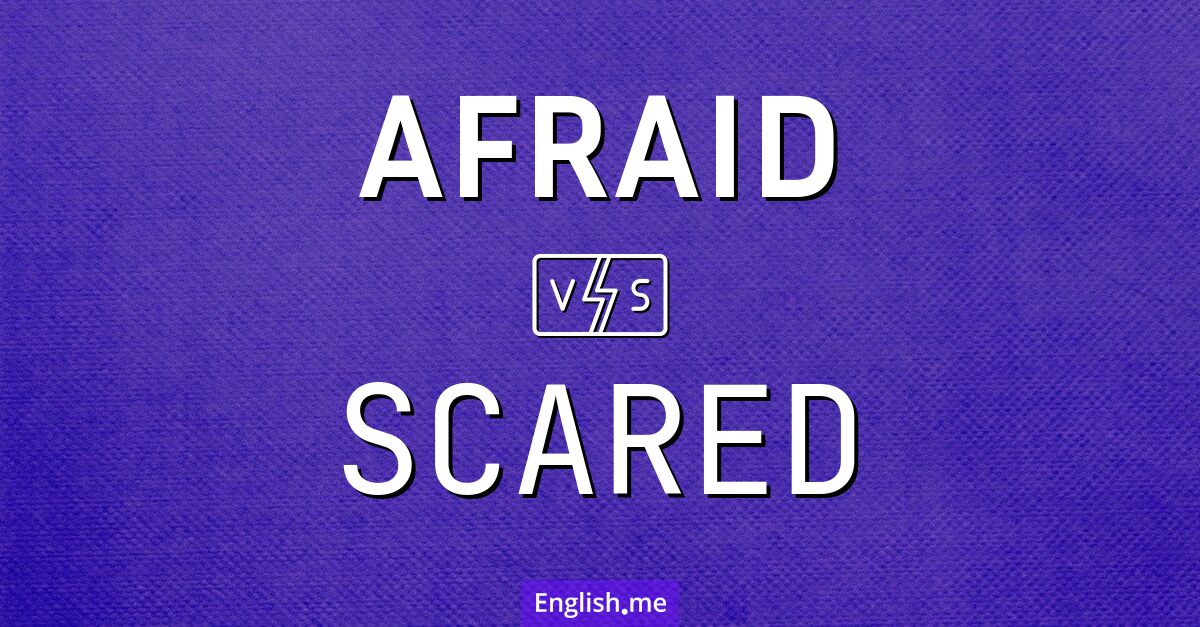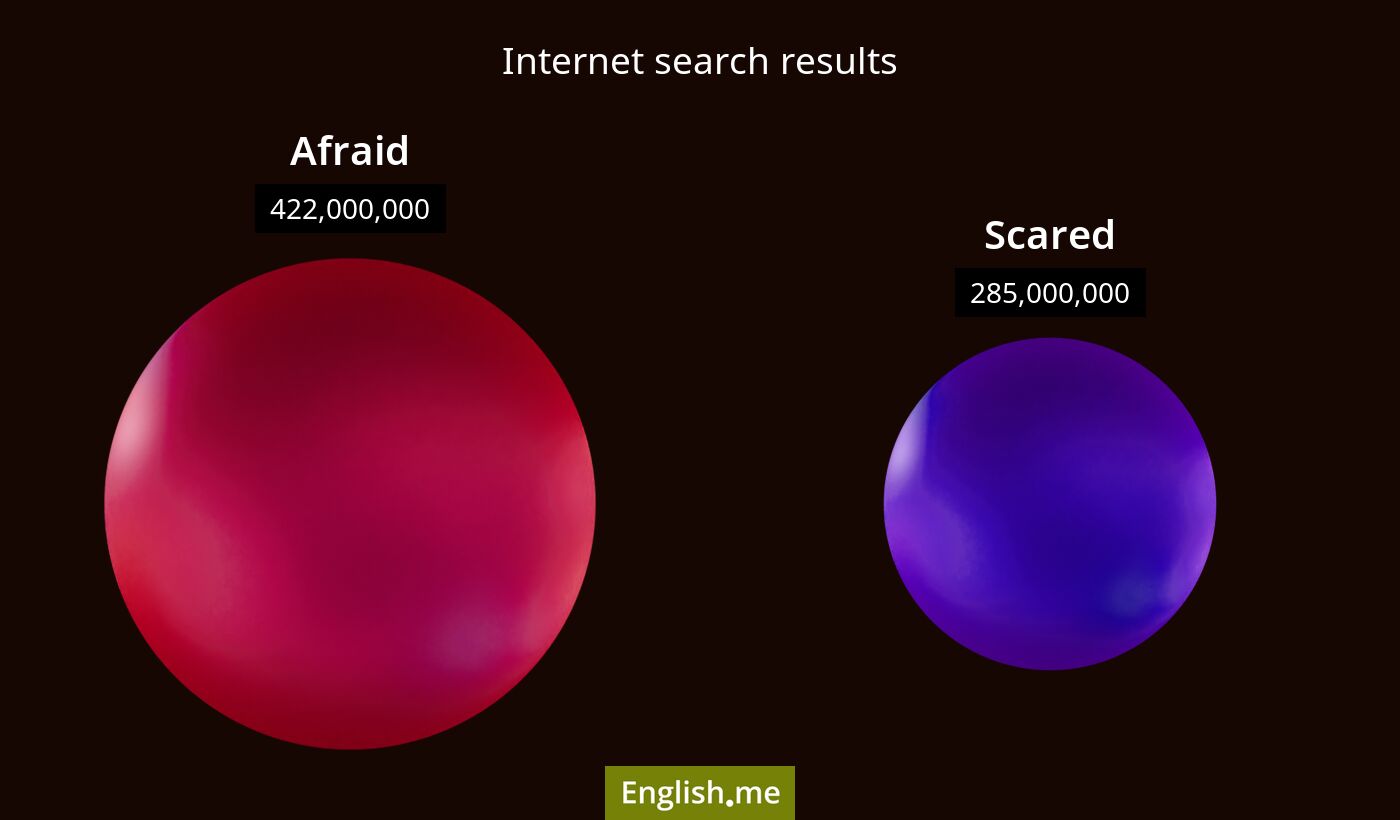"Afraid" vs. "scared": what sets them apart?
Reviewed and edited by  Anwar Kareem 19/12/2024, 08:04
Anwar Kareem 19/12/2024, 08:04
English.me team member

 What is similar?
What is similar?
Both "afraid" and "scared" are adjectives that describe a feeling of fear or anxiety. They are often used interchangeably to express being fearful of something or someone. Both words convey an emotional response to perceived danger or threat.
 What is different?
What is different?
"Afraid" is generally considered more formal and is often used to express a general or ongoing state of fear. It is not typically used before a noun. "Scared" is slightly less formal and can imply a sudden or intense fear. It can be used before a noun (e.g., "a scared child") and is also the past participle of the verb "scare."
 Which one is more common?
Which one is more common?

 Examples of usage
Examples of usage
Afraid- She is afraid of flying in airplanes.
- I'm afraid we don't have any available appointments today.
- They were afraid to venture into the dark forest.
- The sudden noise scared the children.
- He was scared after watching the horror movie.
- Don't be scared to ask questions during the presentation.

 English
English español
español française
française italiano
italiano deutsche
deutsche 日本語
日本語 polski
polski česky
česky svenska
svenska Türkçe
Türkçe Nederlands
Nederlands